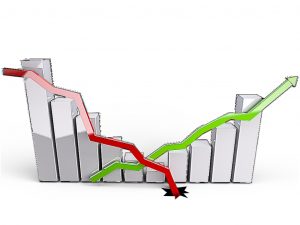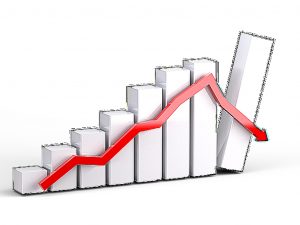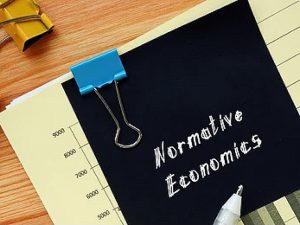Differences Between Positive and Normative Economics: When we hear about the positive and normative school of thought in economics what comes to our mind? Authors, thinkers, writers, and philosophers who postulated this school of thought? Or actual methods that can be used to decifer the economic trajectory of a nation? Either way, you are right. There is, however, a proper way to place the two concepts, and in this article, we are going to be discussing about the two of them and how they function in relation to the general world.
To a lay man, economics can be defined as the branch of knowledge that is concerned with the production, distribution or transfer and consumption of wealth. The lay man also sees economics as the way an individual or nation uses money. That is why when someone is called an economist then people see them as being stingy or miserly.
The proper definition of economics goes this way: It is the study of scarcity and it’s implications as regards the use of resources in production, growth and consumption of goods and resources and other vital issues that concerns a nation’s or a country’s financial status.

Recommended: Differences Between Religion And Morality
The perfect definition goes this way, and it’s by the author Adam Smith. His notable contribution to the field of economics was in his 1776 book, An Inquiry into the Nature and Causes of the Wealth of Nations, and it went this way: Ecoonomics is “an inquiry into the nature and casues of the wealth of nations.”
The second definition comes from Lionel Robbins who defined economics as “the science which studies human behaviour as a relationship between ends and scarce means which have alternative uses”. Economics is a broad field which also comprises two aspects, viz: The positivist school and the normative school of thought.
Positive economics focuses on the stream of consciousness model that uses quantification, description, explanation of economic developments, expectations, and associated phenomena to rely on objective data analysis, associated figures, relevant facts and attempts to establish a cause-and-effect association that helps to test the development of different economic theories.

Also see: Differences between growth and development
Normative economics focuses on open-oriented, prescriptive and “what should be” statements aimed towards economic developments, discussions, progress, scenarios and investment projects. It’s goals is to summarize people’s desirability or lack of desire to various economic situations by asking what ought to be.

Differences Between Positive and Normative Economics
Their detailed differences are as follows:
1. Positivist statements are descriptive, clearly measurable and precise. The statements can be measured against tangible evidence or historical instances and there are no instances of approval-disapproval in positive economics due to the presence of different viewpoints.
On tbe other hand, Normative economics is subjective, value-based, and originating from personal perspectives, and viewpoints on decision making. They are rigid and prescriptive in nature, sound authoritarian, and seek “what should be” or “what ought to be.”

Also see: Tools for economic analysis
2. The perspective of the positive economics is objective while the normative economics attacks from a subjective perspective: The positive economy is objective in nature as it is fact-based. It’s statements are measurable, can be proved and accessed while normative economics is subjective and steems from the feelings of the individuals when making their decisions.
The normative economics perspective is based on the subjective point of view. It details the thoughts and perceptions of the individual and from there generates ideas.
3. Positive economics is scientific in nature while normative economics cannot be scientifically proven: The approach of positive economics is scientific and calculated on a particular economic issue.
The statement of the positive economist is recorded to make a conclusion. The statements of a positive economist can be tested and proved by comparing it with previous statements or with other records. The statements of a positive economist can be proved and disproved.
Normative economics on the other hand cannot be provided scientifically, but also provides the same solutions that are based on the personal motives, values and judgement of the individual. The statements of normative economics cannot be proved or disproved.
Recommended: Countries with the Most Beautiful Women in the world 2022
4. Positive ecoonomics is more calculated in it’s approach as it provides a scientific and calculated analysis of an issue, while normative economics provides such solutions but they are based on personal values: Every statement of an econcomist seeks to reach a conclusion, but they both have their methods of doing this.
The positivist method can be proved and tested by comparing it to previous statements or records of other economist. Such that, the statements of positive econcomists seek to consider what is actually happening in a country, it helps policymakers to decide whether their proposed action will be able to fulfill our objectives or not, and based on whether they are useful or not, they are then accepted or rejected.
Normative economists on the other hand cannot be proved and tested comparing it to previous statements. The statement of a normative economist seeks to consider what is happening within the individual, which is the subjective perspective of the economists.
5. The positive economists seeks to know ‘what is’; while normative economists seeks to know ‘what should be’: The positive economists relies on factual approach, which is also known as what is. The positive economist uses fact that has been postulated, facts that are genuine and ones that have worked either in a nation’s economy or in the general world.
The normative economists, however, base their approach on things that are yet to be, and what should be. They base their assertions on the internal perspective of the individual. They rely on personal approach rather than data that has been coalated overtime.
Recommended: How to Be a Successful Engineer
6. Positive economists seeks to check the cause and outcome among variables, while normative economics seeks to provide value judgement: The positive economists is used to describe the main issue of the economy and explains the cause and effect relationship between variables by stating the facts or happening in the economy. It uses actual and real-life situations of the economy to postulate the future trend and movement of the economy.
On the other hand, the normative economy uses real-life actions to pass solutions to the economy and provide a solution to the problems and passes value conclusion.
Also see: Relationship Between Law And Political Science
7. The positive view presents actual data that is possible in the future, while the normative view presents statements that may or may not be possible in the future: It comes from previously recorded facts, statistics and data that has been provided over the years, and it predicts things that are possible in the future, that’s why many economists base their decisions on the positivists school of thought.
The normative view isn’t the best view in this scenario because, in most cases, it doesn’t have credible data to back its statements up. It is narrow, not fact based, and is based on the value and beliefs of others, so therefore it doesn’t predict things that are possible in the future, and is not a popular and well followed school of thought.
Recommended: Relationship Between Philosophy And Education
Conclusion
In conclusion, we are left as which is better between the two of them: The Positivist or the Normative Economics? Both are good, depending on their uses, and both have their place in the general world. Both of them also have their flaws. As the positive view is required to create the policies in a country, region, and the industrial sector, so is the normative view required to give credence to the thoughts of the individual and lunch into the world economic principles that would benefit everybody and not just the nation.

Edeh Samuel Chukwuemeka, ACMC, is a lawyer and a certified mediator/conciliator in Nigeria. He is also a developer with knowledge in various programming languages. Samuel is determined to leverage his skills in technology, SEO, and legal practice to revolutionize the legal profession worldwide by creating web and mobile applications that simplify legal research. Sam is also passionate about educating and providing valuable information to people.